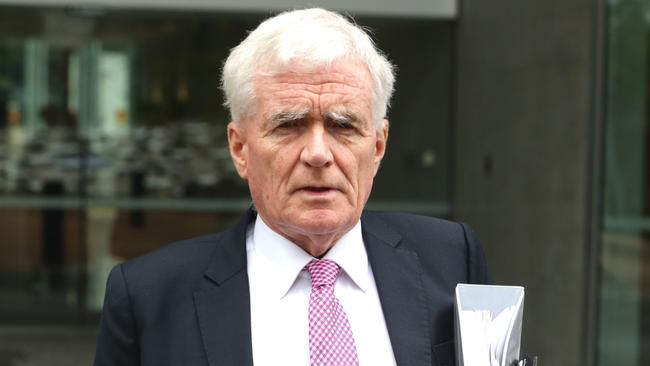Same-sex safeguards just ‘gesture politics’
Two NSW Catholic bishops have broken ranks with the No side in the same-sex marriage debate.

Two NSW Catholic bishops have broken ranks with the No side in the same-sex marriage debate.
While stopping short of calling for a Yes vote, Bishop Bill Wright of Maitland-Newcastle said a “common good’’ argument could be made that “in our pluralist society, it does more for community peace and harmony for gay couples to have a place in the recognised structures than for them to be excluded’’.
The bishops’ comments came as Australian Council of Civil Liberties president Terry O’Gorman, attacked emergency safeguards around the same-sex marriage postal survey as an exercise in “gesture politics” and sounded the alarm on any attempts to make them permanent.
In an article published on his diocesan website, Bishop Wright said: “I wrote some time ago that the push for same-sex marriage seemed to arise from the desire of gay couples to have an officially sanctioned ceremony to formalise their commitment to each other and then to have that relationship accorded legal and social recognition. It seemed to me then, and now, that in a society where same-sex relationships are legal and gay couples can adopt and raise children, it’s a bit of a legal anomaly that their relationship itself doesn’t have a clear legal status.’’
Yesterday, Bishop Vincent Long of Parramatta said the postal survey was “an opportunity for us to listen to what the Spirit is saying through the signs of the times’’.
“Our gay and lesbian brothers and sisters have often not been treated with respect, sensitivity and compassion,’’ Bishop Long said in a pastoral letter. “Regrettably, the church has not always been a place where they have felt welcomed, accepted and loved.’’
Bishop Wright advised Catholics to “look beyond the campaign slogans and anecdotes, and vote for what you believe will be best for our Australian community — now and into future generations”.
Mr O’Gorman yesterday backed a warning from Australian Conservatives senator Cory Bernardi, who said the passage of temporary protections for the duration of the survey amounted to a version of “18C on steroids”.
“The fact is, a temporary measure today will be a justification for a permanent measure tomorrow,” Mr O’Gorman said yesterday.
“It’s intellectually dishonest to justify it on the basis of it being a temporary measure. The fact is that this is an emotive and divisive topic, but there should not be restrictions ... with the exception of threats to cause violence.”
The warning came as the Law Council of Australia confirmed it was agnostic on the issue as temporary safeguards passed both houses of parliament.
The legislation is aimed at clamping down on vilification, intimidation and threats to cause harm against people on the basis of their sexual orientation, gender identity, intersex status or religious conviction, with Attorney-General George Brandis to manage complaints as a “gatekeeper” until the survey result is declared on November 15.
Gay-marriage lobby group “just.equal” yesterday pushed for protections for LGBTIQ people to be extended. Spokesman Brian Greig called on the government to “cement a national law to prevent vilification against LGBTI people”.
Labor argued that legislating the safeguards did not legitimise the government’s $122 million survey, with opposition Senate leader Penny Wong saying they would fail to “stop all the hurt, all the prejudice” being directed towards LGBTIQ people. “It provides limited protections, and on that basis the opposition will be supporting it,” she told the Senate.
Asked whether Labor would support permanent safeguards, opposition legal affairs spokesman Mark Dreyfus said: “They apply only until the completion of the survey in mid-November.”
Law Council president Fiona McLeod said the question needed to be properly examined. She said the inclusion of the Attorney-General as “gatekeeper” appeared designed to help manage the number of complaints and knock out frivolous or vexatious claims.
Yesterday, Senator Bernardi said the safeguards would crimp free speech and amounted to “18C on steroids”, referring to protections in the Racial Discrimination Act against conduct that could offend or insult on the basis of race, colour, national or ethnic origin.


